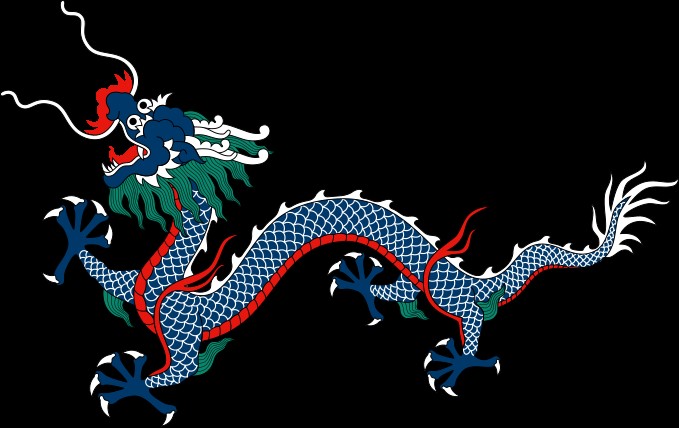Within a year after the itinerant peasant-poet Chen Hsi-wei retired to a small cottage outside Chiangling, he began receiving occasional visitors. Lady Bao, widow of the governor whom she nagged into providing the poet with his first and final home, came several times, bringing food, and ordering improvements to the rundown two-room cottage. Fang Xuan-ling, a minister of the new Tang Dynasty, took a leave from his duties just to visit Hsi-wei. He stayed in the villa of the new governor for more than a week, riding out each morning to talk with Hsi-wei, questioning the poet about his verses, which he admired and had collected. Fang entered the notes he took of their conversations in his journal each night. But there were also other less august visitors. Among these was Shao Jiang-hua, a young man who had recently passed the imperial examinations and had been sent to Chiangling to fill the modest post of third deputy magistrate.
Shao arrived just after noon on a clear, unseasonably warm spring day. Hsi-wei courteously greeted the young man, who rode a sweating nag well past its prime. Hsi-wei invited his guest to sit in the tiny cobblestoned patio he called his courtyard. Then the poet fetched a bucket of water for the horse. Excused himself to his guest, he went into the cottage to make tea.
The young deputy noted that Hsi-wei served the horse before him. He was offended; but then, recalling the stories he had been told about Hsi-wei, he wasn’t.
Once they were settled and the tea poured, Hsi-wei spoke with some anxiety. “Deputy Shao, are you here on official business? Is there some problem?”
Shao raised a hand. “No, nothing of the sort, I assure you. No, it’s a private matter.” He went on haltingly, unsure how to address a peasant who was also a poet of some renown. What measure of respect was owed to the latter, how much condescension for the former? The deputy adjusted his robe, sat upright, and rubbed the back of his right hand with the fingers of his left.
“I’m here on behalf of my father—that is, when he heard that you are living here—I mean living near Chiangling—he wrote and asked me to see you.”
“Your father is far away then?”
Shao looked pained. “Very far. In the north. In Jizhou, in Yan.”
“I see. That is indeed far away.”
“He is there because of a great injustice!” Shao could not help declaring, then he went on, relieving himself of a grievance he could scarcely discuss with his superior or his new colleagues. “My father held a high post in the capital, in the Ministry of Rites. He served most honorably, but three years ago, he was scurrilously slandered by a pair of subordinates. The villains accused my father of embezzlement and forged evidence against him. The false documents were believed. He was exiled to Yan and assigned to the humiliating post of scribe to the local prefect.”
“You didn’t follow him to Yan, I take it?”
“I wanted to! Of course, I did. But my father insisted I remain in the capital. As perhaps you know, the Ministry of Rites has charge of the imperial examinations. My father arranged with a colleague—a good man who knew he was innocent—that I should be allowed to study and take the examinations. Though he could ill afford it, my father gave this man money for my support as I prepared. Now he is living in shame and poverty. He writes that he has only two consolations. One is my future; the other is poetry, especially the poems written by exiles like himself.”
Hsi-wei nodded. “Xiaoxing poetry.”
“Yes, that’s what it’s called…the poems of banished officials, those who dared to dissent or, like my father, were traduced.”
“It is, alas, a genre with a long tradition.”
“Yes,” said Shao, as if still taking his recent examinations. “It began with Qu Yuan nearly a thousand years ago in the Kingdom of Chu and then was continued in the Han Dynasty by Jia Yi.”
“You’re well informed,” said Hsi-wei with a smile.
“I’m hardly an expert, and I don’t share my father’s enthusiasm for poetry; but of course, I had to study the classics.”
Hsi-wei poured them both a second cup of the now tepid tea.
“So, if I’ve understood, you’ve come to see me on your father’s behalf?”
“Yes. He wanted me to ask you about something—and, I suppose, he wanted me to meet you. He likes your poems. I remember him telling me that in all our history we have produced only one peasant-poet.”
“That I doubt, Deputy Shao. But the poems of peasants would not be asked about on imperial examinations. They would not be circulated and certainly not read at court.”
“But yours are, Master Chen. They may not be on the examination syllabus, but they’re widely read, including at court. Poetry lovers read them, people like my father.”
Hsi-wei offered a modest bow. “You do me honor to say so.”
The young man shrugged. “Well, it’s a fact. Everybody seems to know your famous letter and also that poem about Lake Weishan. It’s even been set to music.”
Hsi-wei sipped his tea and was silent for a few moments. Then got to his feet and changed the subject.
“I haven’t much to offer, but there is some soup and also rice cakes. You must be even hungrier than I am. Let’s eat and then you can ask me anything you like.”
Shao relished the turnip soup, as cheap and common a peasant dish as there is; but he had never tasted it before. He asked Hsi-wei why it had no meat and yet tasted of pork.
“I flavored it,” the poet explained, “with leftover sparerib bones. It’s something peasants do, nothing wasted that can be used more than once. Now, if you please, what is your honorable father’s question?”
Shao tipped the soup bowl into his mouth, polishing off the last drops. “It’s quite specific—and yet, I think, also not.”
“That’s intriguing, Deputy. Go on.”
“My father wants your opinion of Qu Yuan’s innovation.”
“I expect he means Qu’s abandonment of the four-character verses of the Shi Jing.”
“Exactly, for verses of varied length. Having read some of your poems, I guess that you approve.”
“Qu Yuan and the Shi Jing masters can all get along without the approval of the likes of me. We versifiers owe everything to them.”
“Yes, but do you think what Qu did was a good thing? Do you have an idea why he did it? I’m certain that would interest my father. Perhaps that’s what he wants to know.”
“They say Qu was the first poet to have work ascribed to him by name. It’s nearly ten centuries since he lived. In other words, it was a long time ago that he dropped the four-character limit.”
“Do you really think time has anything to do with it?”
The question was rhetorical, and Hsi-wei smiled at it. Young Deputy Shao was not unintelligent. “Hardly anything,” the poet replied. “My admiration of the Shi Jing masters is boundless, but I confess I couldn’t breathe inside their boundaries, or live up to their strictures. Though I hesitate to compare great things to negligible ones, I think it might have been the same with Master Qu Yuan. I’m sure he could have easily dealt with the exacting four-character limit, but could not resist the urge, to write more expressively; that is to say, with more freedom.”
“Was it a kind of dissent, then? Exceeding the limit?”
“I wouldn’t say so. It was need, I think, not rebellion. Qu’s writing came from deep inside him, not out of discord with those outside.”
The young man considered this. “My father is partial to the Chu Ci anthology. If I remember right, that’s where Qu’s poems are.”
“Correct. The Chu Ci is the only equal of the Shi Jing.”
Shao looked pleased with himself, a student who had just given his teacher the right answer.
“By the way, do you know Qu Yuan’s story?”
Shao shook his head. “I’m embarrassed to confess I don’t.”
“It may be that Qu’s life appeals as much as his poetry to your father.”
“Tell me.”
“There is only single source—Sima Qian, another ancient poet. I imagine that, like your father, Sima found in Qu both inspiration and consolation. Sima tells us that Qu was a member of the Chu royal family and a high official under his relative King Huai. Qu was libeled by ambitious and unscrupulous underlings. Like your father, he was sent to the north back to his native town. Sima says that Qu wrote his finest poems during his exile.” Hsi-wei smiled at the young man. “Sima also reports that Qu traveled around the district collecting folk poems—that is, Deputy, poems written by peasants.”
Shao blushed at the mild reproach. “Please, go on,” he said.
“Well, it seems that Qu’s abilities were missed. He was recalled to the capital and dispatched to negotiate better relations with the aggressive Kingdom of Qin. He did not succeed. As you know, Qin invaded and conquered Chu. Sometime afterwards, Sima does say how long, Qu drowned in the Milou River. Sima reports that some believe it was out of political despair, because of his failed mission; others say it was for private reasons. Nobody really knows.”
The young man looked alarmed. “Do you think my poor rather might do the same?”
“I hope not! His fate was tragic, but out of Qu’s death came something good, something happy.”
“Happy? What?”
“The Dragon Boat Festival.”
“Really? I didn’t know that.”
“It may only be a legend. But the story is that, when the local villagers saw the great poet, in the middle of the river, they leapt into their boats and rushed to save him. They rowed like mad but arrived too late. To keep the fish and demons away from Qu’s corpse, the peasants pounded the water with their oars, beat drums, and threw rice in the river to distract the demons and the fish. According to the story, the ghost of Qu Yuan later appeared to the villagers, told them he had killed himself, and asked them to wrap rice in three-corned pieces of silk to ward off the dragon.”
“The dragon?”
“Yes. A ferocious and bad one, presumably. A dragon from the Underworld, perhaps, or a private symbol.”
“Three-cornered pieces of silk? So that’s where zongzi treats come from?”
“Yes, with cabbage leaves in place of precious, inedible silk. The annual Dragon Boat races commemorate the villagers’ dash to rescue the much-loved poet from the Milou River.”
“Ah. The Dragon Boat Festival. I never knew where it came from.”
“I’m your father does. And there’s something more. In time, the peasants of the Milhou Valley began to worship Qu as a water god. Not many poets can claim that kind of distinction.”
It had grown late. The young deputy took his leave. Hsi-wei thanked him for his visit then asked him to return.
“Perhaps you can spare me the time, if your duties permit.”
The young man laughed. “My duties are so light as to be almost weightless, Master Hsi-wei. I don’t believe the magistrate has much confidence in me.”
“I’m sure he will, in time. Shall we say in two days, then?”
“Very well. Two days. I promise.”
Shao paused before mounting his well-rested and watered horse. “And thank you, Master, for your answers and your hospitality.”
That night, Hsi-wei lit two candles and unrolled his precious copy of the Chu Ci anthology. He wanted to read through the variable lines of Qu Yuan’s masterwork, the epic of exile known as Lia Sao. Qu begins it pridefully, unbowed, as so many subsequent exiles would.
A prince I am of renowned ancestry
Illustrious the name my royal sire had…
Hsi-wei found Qu’s prelude less appealing than verses that were less arrogant and more to the point:
Long did I sigh and wipe away my tears
to see my people bowed by weeping and grief.
The aristocratic Qu Yuan’s is a double lamentation, for himself but also for the common people. Exile had taught him sympathy and respect. Such is his theme. How often had variations on it been played? Over how many years and dynasties, by how many exiles? Jia Yi, slandered, was banished by Emperor Wen of Han, sent to Changsha. Song Yu, that talented official, whose poems stand beside those of Qu in the Chu Ci collection was also sent away. And so on down the years.
Hsi-wei had lived like an exile himself, though without a royal frown and finger pointing to the gates of the capital. Could he say that exile had been bad for poetry, even for the banished poets? He thought of Shi Xing, whose barbed satire about a lady of the court set him on the road to a monastery in the far north where he became the revered abbot Song Sidao. Hsi-wei had visited the place. Song’s successor told him marvelous stories about the court wit turned holy sage.
He could not deny that, as all these poets made clear, exile was bitter to them and always, to them, unjust. Jealousy, ambition, standing in the way of someone, suspected, framed, maligned, misunderstood, simply disliked, or perhaps guilty as charged—they all wrote of the injustice done them. Humbled, dishonored, sent away from banquet tables, dispossessed of their pillared villas and their exalted posts, they learned about the poor by joining their number. Yet, like Qu Yuan, they never renounced a sense of their “royal blood”—which could be the golden, uninterrupted dynasty of poets and of exiles too—men like the deputy’s father whom they consoled, for whose misery they furnished the best company. Exile could even bestow a sort of honor on the honest and aggrieved, as Qu Yuan claimed:
In exile would I sooner perish than
descend to the baseness of their ways.
All geniuses make virtues of necessity. The exiles clutch their grievances to their breasts, regret the twenty-course feasts, the silk gowns, stately pavilions, the company of the lithe court ladies. Qu did not turn down the summons to return to the capital, to the comforts of the palace where nobody could feel safe, where none could be trusted, where even a position of the lowest rank was precarious.
Deputy Shao arrived early in the morning. The sun had been up for less than two hours. He apologized to Hsi-wei and explained that he had to be present in the magistracy for an investigation at noon.
“I hope it’s nothing terribly serious,” said Hsi-wei.
Shao scoffed. “A minor theft, a small jade Buddha, crudely carved.”
“With respect, Deputy, price and value are not the same things. Even a small and crudely carved Buddha can be precious to a devout follower of the Enlightened One, especially if the believer is poor.”
Shao offered the poet an ironic little bow. “Well, Master Hsi-wei, you’ve enlightened me.”
Hsi-wei pointed to his cottage. “Lady Bao was embarrassed by this refuge she persuaded her late husband to grant me. She thought it mean and said he had promised it would be a fine new four-room villa with a portico and a garden. She had no idea of what it was worth to me. The Minister of Rites seems to have set a low price on your good father. Would you?”
Hearing this, Shao reddened. He looked younger than ever and also more respectful.
“Master Hsi-wei,” he said with a sincere and low bow, “I regret I can’t stay to listen to you until the sun goes down. I think I would profit from it more than witnessing an interrogation. But I do have to go. I believe you asked me to return for a reason.”
“You’re right, Deputy Shao. Please wait here a minute. I promise not to keep you. But first, may I ask your father’s name?
“It’s Tai-zong.”
“And yours?”
“Jing-hua.”
Hsi-wei smiled. “Essence of the capital.”
“Pardon me?”
“Jing-hua. Your father found your name in a poem by Qu Yuan.”
“But—”
“It means your father was reading Qu before you were born.”
Hsi-wei went into the cottage and returned with a small scroll tied with a piece of burlap. He handed it to Shao.
“This is for your father. Please send it to him for me. I needed to put his name on it because it is dedicated to him, to the wronged Shao Tai-zong.”
Here is the poem. Hsi-wei had inscribed it carefully, trying his best to improve on the calligraphy his old teacher, Master Shen, deplored as “bird’s foot writing,” saying, “It’s as if a sparrow had landed in a puddle of ink and hopped across the paper.”
Once, in the village of Fenghuang, I spied
six boys playing an unfamiliar game.
They lined up, each clasping tight the waist
of the child in front. At a cry from the first boy,
they began to twist and stumble, screaming,
as children do, with boisterous alarm
and unbridled joy, until the last boy
tackled the first and all fell down.
As they got to their feet, I stopped a boy
of about seven and asked about the game.
It was lunchtime; his friends were scattering.
It’s called Dragon’s Tail, he told me.
The one in front’s the head and the one
in back’s the tail. Tail has to catch
Head and everybody tries to stop him.
So, I guessed, if the tail succeeds, he becomes
the new head and the old head has to take
the place behind him? Impatient to leave,
the boy nodded twice and ran off home.
An amusing diversion, a contest, child’s play.
In Daxing, I sometimes heard news of the goings-on
at court, whispers spreading out from laundries and kitchens.
Ministers tumbling, petrified prefects, magistrates
clutching at the evaporating favor of their superiors,
concubines discarded, first wives introduced to seconds.
In Daxing, many heads are frightened of their tails.
To read more Hsi-wei tales, click here
About the Author

Robert Wexelblatt is a professor of humanities at Boston University’s College of General Studies. He has published ten collections of short stories; two books of essays; two short novels; three books of poems; stories, essays, and poems in a variety of journals, and a novel awarded the Indie Book Awards first prize for fiction.












